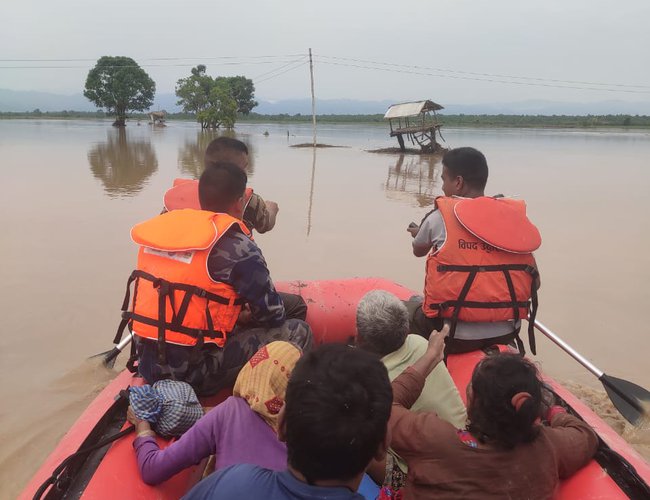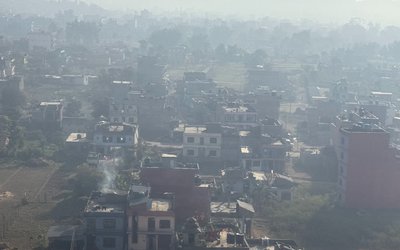
World Humanitarian Day is an opportunity to acknowledge the work of humanitarian workers around the world who bring assistance, relief, and hope to the millions of people affected by crises. Humanitarian workers operate on the frontlines, managing emergency responses that rebuild communities, strengthen resilience, and promote peace. Despite these efforts, they often risk their lives, facing minimal protection and significant political, legal, and security threats, including being targeted for attention.
As of 2024, over 362 million people worldwide need humanitarian assistance, according to the UN OCHA. This figure reflects the growing scale of crises globally, driven by conflict, natural disasters, and other challenges. This year, the theme #ActForHumanity serves as a powerful reminder of the importance of the protection and treatment of civilians caught in conflict and disaster zones.
Today's geopolitical tensions have made humanitarian work even more difficult. In conflict zones like Gaza and Ukraine, delivering aid is incredibly challenging due to violence and damaged infrastructure. Civilians are often trapped in the middle, making the situation even more dire. On top of this, recurring natural disasters like floods and landslides continue to worsen crises, hitting the poorest and most vulnerable communities the hardest.
Beyond these, other pressing humanitarian issues, such as famine in parts of Africa, the impact of climate change on small island nations, and displacement crises in regions like the Sahel, require urgent attention. In Asia, similar challenges are seen with climate-related disasters and rising displacement issues. These problems are exacerbated by shrinking democratic and civic space, which limits access to affected areas and impedes effective aid delivery. Additionally, funding shortages and complex coordination efforts make it even harder to ensure that aid reaches those who need it most.
The United Nations has played a central role in addressing these humanitarian crises. However, the UN’s role in humanitarian action is not without its challenges and criticisms. In some instances, the UN's ability to act is hampered by political considerations, as powerful member states exert influence over its operations, leading to delays or inadequate responses in critical situations.
To prevent future conflicts and build resilient communities, development efforts need to focus on peacebuilding and social cohesion from the start. It’s not just about reacting to crises but addressing the root causes of violence and instability. This means promoting dialogue, understanding, and cooperation among different groups and tackling economic and social inequalities.
Development programs should strengthen community bonds, support local initiatives, and ensure all voices are heard to foster peace and social cohesion. This approach helps resolve disputes peacefully, promotes dialogue, and prevents conflicts from escalating. On an international level, there is a shared responsibility to support these efforts and ensure that resources are directed towards development and peacebuilding rather than conflict.
Additionally, reducing the impact of the war economy where conflict drives economic activity can help redirect resources towards constructive and sustainable development, rather than perpetuating violence. International collaboration and commitment are crucial in addressing these issues and promoting a more peaceful and stable world.
World Humanitarian Day highlights our shared responsibility to make a difference, echoing Ban Ki-moon’s belief that "Humanitarian work is a moral imperative." It also resonates with the words of Kofi Annan, who said, "We will not enjoy the luxury of peace if we are not willing to work for justice." This day calls for improved quality, compliance, and accountability in crisis response, ensuring that all efforts are both effective and ethical.
Author: Dr. Prabin Manandhar is an expert in international development. Currently, he is working as the Country Director of Helvetas Swiss Intercooperation Nepal. He is the Former Chair of the Association of International NGOs in Nepal (AIN). He is also a visiting faculty at Kathmandu University and the Tribhuvan University Institute of Crisis Management Studies. The opinions are his own and not that of his employer. He can be reached at prabin.manandhar11@gmail.com
- Reclaiming Nepal’s Budget From Hidden Hands
- Jun 07, 2025
- Redefining Regional Cooperation: How SAARC can evolve like ASEAN
- May 11, 2025
- From Nepal to Myanmar: Navigating Earthquake Response Lessons
- Apr 13, 2025
- Nepal Investment Summit: Unlocking Economic Potentials For Growth And Development
- Apr 28, 2024
- Investing In Women: Accelerating Progress
- Mar 10, 2024















